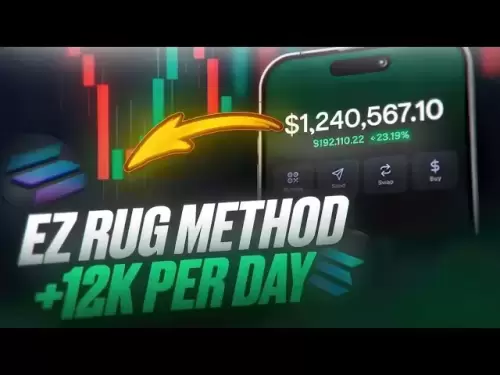-
 Bitcoin
Bitcoin $108,443.4896
0.48% -
 Ethereum
Ethereum $2,597.3843
2.42% -
 Tether USDt
Tether USDt $1.0002
0.02% -
 XRP
XRP $2.3025
1.83% -
 BNB
BNB $661.6147
0.34% -
 Solana
Solana $151.4228
1.80% -
 USDC
USDC $1.0000
0.00% -
 TRON
TRON $0.2877
0.14% -
 Dogecoin
Dogecoin $0.1705
1.56% -
 Cardano
Cardano $0.5848
1.48% -
 Hyperliquid
Hyperliquid $38.8396
3.64% -
 Bitcoin Cash
Bitcoin Cash $507.5891
2.30% -
 Sui
Sui $2.8908
1.27% -
 Chainlink
Chainlink $13.8521
4.52% -
 UNUS SED LEO
UNUS SED LEO $9.1329
0.87% -
 Stellar
Stellar $0.2603
5.49% -
 Avalanche
Avalanche $18.1289
1.71% -
 Shiba Inu
Shiba Inu $0.0...01182
1.89% -
 Toncoin
Toncoin $2.8045
2.20% -
 Hedera
Hedera $0.1601
2.64% -
 Litecoin
Litecoin $87.5825
1.89% -
 Monero
Monero $315.6725
-0.03% -
 Polkadot
Polkadot $3.4216
2.10% -
 Dai
Dai $1.0000
0.00% -
 Ethena USDe
Ethena USDe $1.0007
0.06% -
 Bitget Token
Bitget Token $4.2988
-0.01% -
 Uniswap
Uniswap $7.5739
2.72% -
 Aave
Aave $290.8204
4.41% -
 Pepe
Pepe $0.0...01004
2.03% -
 Pi
Pi $0.4611
1.11%
How to evaluate the security of Bitcoin wallet storage solutions?
Secure Bitcoin wallet selection is crucial; hardware wallets offer the highest security, while software and web wallets present varying vulnerabilities. Thorough evaluation of features like private key management, MFA, and security audits is paramount before choosing a wallet.
Mar 25, 2025 at 10:29 am
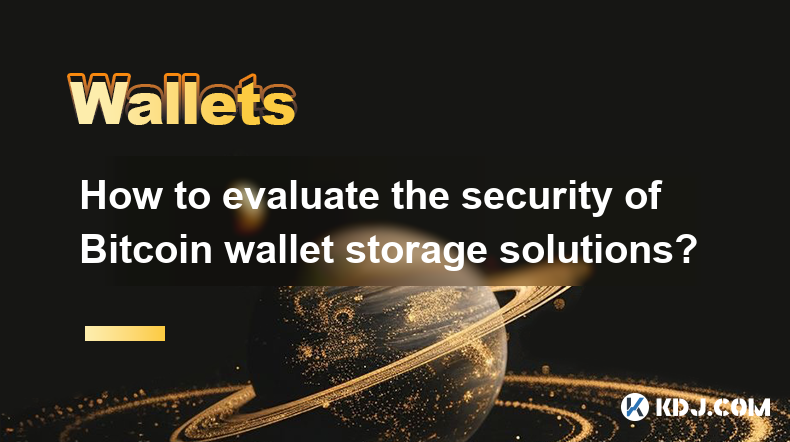
How to Evaluate the Security of Bitcoin Wallet Storage Solutions?
Choosing a secure Bitcoin wallet is crucial for protecting your cryptocurrency holdings. The security of your Bitcoin depends entirely on the security of your chosen wallet. Different wallets offer varying levels of security, making careful evaluation paramount. This article explores key factors to consider when assessing the security of various Bitcoin wallet storage solutions.
Understanding Wallet Types and Their Security Implications
Before diving into security evaluations, understanding the different types of Bitcoin wallets is vital. Each type presents a unique security profile. We have hardware wallets, software wallets (desktop and mobile), and web wallets.
- Hardware Wallets: These physical devices store your private keys offline, providing the highest level of security against hacking and malware. However, physical loss or damage remains a concern.
- Software Wallets: These wallets store your private keys on your computer or mobile device. While convenient, they are vulnerable to malware, operating system compromises, and device theft. Desktop wallets offer a bit more security than mobile ones, generally.
- Web Wallets: These are online wallets provided by third-party services. They are convenient but inherently less secure, as your private keys are stored on a server controlled by a third party. This exposes you to potential hacking and platform vulnerabilities.
Evaluating Security Features: A Detailed Breakdown
Several key features directly impact a Bitcoin wallet's security. Carefully analyzing these features is critical before choosing a wallet.
- Private Key Management: How are private keys generated, stored, and managed? Strong encryption and secure key generation processes are vital. Look for wallets that offer multiple signature options for enhanced security.
- Multi-Factor Authentication (MFA): Does the wallet support MFA? This adds an extra layer of security, requiring more than just a password to access your funds. Consider wallets that offer both hardware and software-based MFA options.
- Backup and Recovery: What options are available for backing up and recovering your wallet if your device is lost or damaged? A robust backup and recovery system is crucial for mitigating potential losses. Seed phrases are critical here.
- Security Audits: Has the wallet software undergone independent security audits? Reputable wallets will openly share audit reports demonstrating their security practices.
- Reputation and Track Record: Choose wallets from established providers with a proven track record of security and reliability. Research user reviews and look for evidence of past security breaches or vulnerabilities.
- Open-Source Code: For software wallets, consider those with open-source code. This allows independent security researchers to review the code for vulnerabilities, enhancing overall security.
Specific Security Considerations for Different Wallet Types
Let's delve deeper into security considerations specific to each wallet type.
- Hardware Wallet Security: Prioritize wallets with tamper-evident seals and robust firmware updates. Regularly check for firmware updates to patch any known vulnerabilities. Never share your seed phrase with anyone.
- Software Wallet Security: Install antivirus and anti-malware software on your device. Keep your operating system and wallet software up to date with the latest security patches. Avoid downloading wallets from untrusted sources.
- Web Wallet Security: Choose reputable web wallets with a strong security track record. Be cautious about phishing attempts and only access your wallet through trusted links. Consider using a VPN for added privacy.
Beyond the Wallet: Protecting Your Bitcoin
Even with a secure wallet, other practices contribute significantly to overall security.
- Strong Passwords: Use strong, unique passwords for your wallet and associated accounts. Consider using a password manager to help manage these passwords securely.
- Secure Internet Connection: Always access your wallet through a secure internet connection, preferably a VPN, to protect against man-in-the-middle attacks.
- Regular Security Reviews: Regularly review your wallet's security settings and practices. Stay updated on the latest security threats and best practices.
- Cold Storage: For long-term storage, consider cold storage, which involves storing your private keys offline, significantly reducing the risk of theft or hacking.
Common Questions and Answers
Q: What is a seed phrase, and why is it so important?
A: A seed phrase is a list of words that acts as a backup for your wallet's private keys. If you lose access to your wallet, your seed phrase allows you to restore it and access your funds. It's crucial to keep it safe and secure, as anyone with your seed phrase can access your Bitcoin.
Q: Are all hardware wallets equally secure?
A: No. While hardware wallets generally offer the highest level of security, the specific security features vary between different models and manufacturers. Some have better tamper resistance, more robust firmware, or more advanced security features. Research thoroughly before choosing a hardware wallet.
Q: How often should I update my wallet software?
A: Regularly update your wallet software to benefit from the latest security patches and bug fixes. The frequency depends on the wallet provider's release schedule, but generally, updating as soon as updates are available is recommended.
Q: What is the best way to protect my seed phrase?
A: Store your seed phrase offline in a safe and secure location. Consider using a metal plate, splitting the seed phrase across multiple locations, or using a secure physical document. Never store it digitally.
Q: Can I use the same password for multiple wallets?
A: No. Using the same password for multiple wallets significantly increases your risk if one wallet is compromised. Always use unique, strong passwords for each wallet.
Disclaimer:info@kdj.com
The information provided is not trading advice. kdj.com does not assume any responsibility for any investments made based on the information provided in this article. Cryptocurrencies are highly volatile and it is highly recommended that you invest with caution after thorough research!
If you believe that the content used on this website infringes your copyright, please contact us immediately (info@kdj.com) and we will delete it promptly.
- Crypto Whale's Portfolio: Decoding Token Stashes and Emerging Trends
- 2025-07-09 08:30:12
- Rare Coin, Lucky Find, Valuable Coin: Unearthing Treasures in Everyday Change
- 2025-07-09 08:30:12
- Coinbase, Altcoins, and the Empire State: A New Era for New York Crypto?
- 2025-07-09 09:30:12
- HTX, WLFI, and Stablecoins: Navigating the Future of Digital Finance
- 2025-07-09 08:50:12
- ADA Whale Activity: Big Wallets Eyeing Cardano for a Breakout?
- 2025-07-09 09:30:12
- Bitcoin: Holding Still Pays Off, Ya Know?
- 2025-07-09 09:30:13
Related knowledge
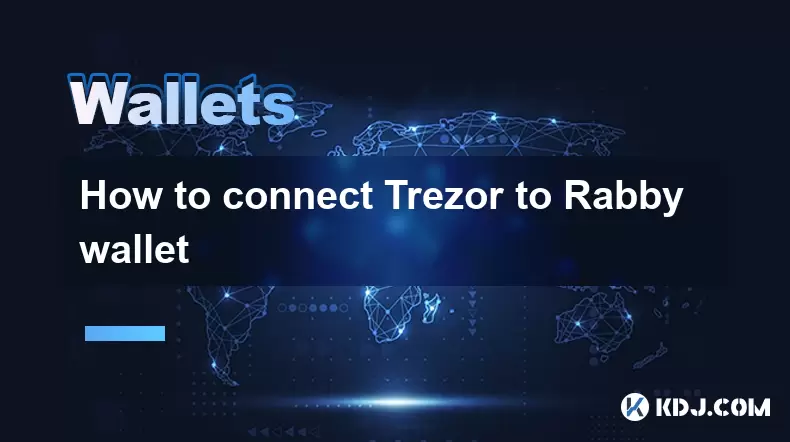
How to connect Trezor to Rabby wallet
Jul 09,2025 at 05:49am
What Is Trezor and Rabby Wallet?Trezor is a hardware wallet developed by SatoshiLabs that allows users to securely store their cryptocurrency assets o...
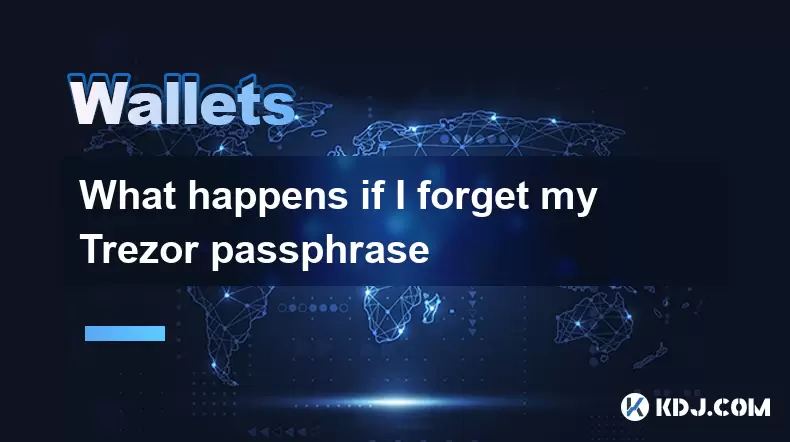
What happens if I forget my Trezor passphrase
Jul 09,2025 at 03:15am
Understanding the Role of a Trezor PassphraseIf you use a Trezor hardware wallet, you may have set up a passphrase as an extra layer of security beyon...
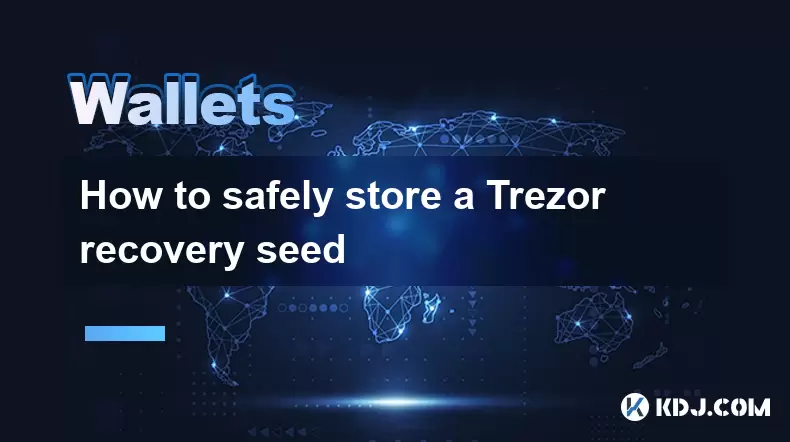
How to safely store a Trezor recovery seed
Jul 09,2025 at 11:22am
Understanding the Importance of a Trezor Recovery SeedA Trezor recovery seed is a sequence of 12 or 24 words generated during the initial setup of you...
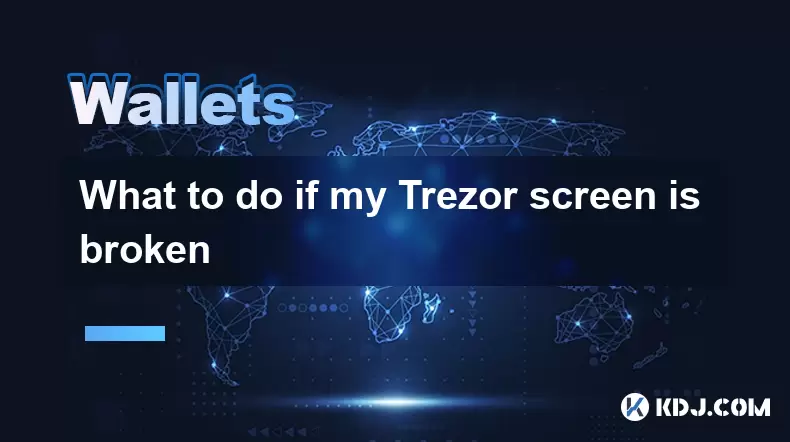
What to do if my Trezor screen is broken
Jul 09,2025 at 10:36am
Understanding the Impact of a Broken Trezor ScreenIf your Trezor screen is broken, it can significantly affect how you interact with your cryptocurren...
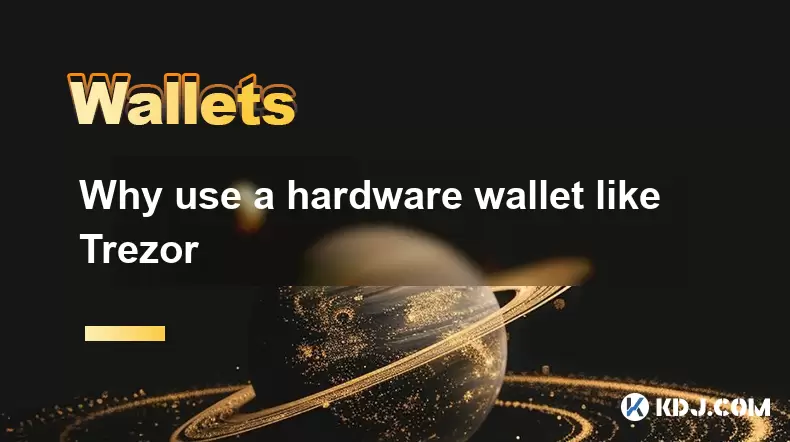
Why use a hardware wallet like Trezor
Jul 09,2025 at 11:00am
What Is a Hardware Wallet and Why It MattersA hardware wallet is a physical device designed to securely store the private keys of cryptocurrencies off...
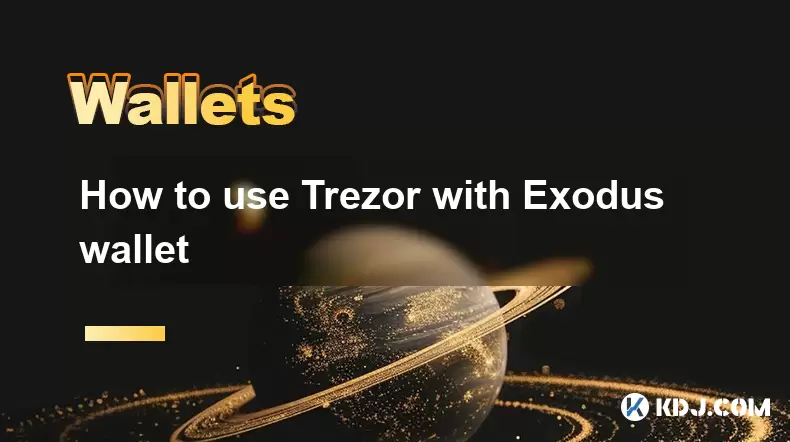
How to use Trezor with Exodus wallet
Jul 09,2025 at 12:49am
Connecting Trezor Hardware Wallet to Exodus Software WalletTo use Trezor with Exodus wallet, users need to connect the hardware wallet to the software...

How to connect Trezor to Rabby wallet
Jul 09,2025 at 05:49am
What Is Trezor and Rabby Wallet?Trezor is a hardware wallet developed by SatoshiLabs that allows users to securely store their cryptocurrency assets o...

What happens if I forget my Trezor passphrase
Jul 09,2025 at 03:15am
Understanding the Role of a Trezor PassphraseIf you use a Trezor hardware wallet, you may have set up a passphrase as an extra layer of security beyon...

How to safely store a Trezor recovery seed
Jul 09,2025 at 11:22am
Understanding the Importance of a Trezor Recovery SeedA Trezor recovery seed is a sequence of 12 or 24 words generated during the initial setup of you...

What to do if my Trezor screen is broken
Jul 09,2025 at 10:36am
Understanding the Impact of a Broken Trezor ScreenIf your Trezor screen is broken, it can significantly affect how you interact with your cryptocurren...

Why use a hardware wallet like Trezor
Jul 09,2025 at 11:00am
What Is a Hardware Wallet and Why It MattersA hardware wallet is a physical device designed to securely store the private keys of cryptocurrencies off...

How to use Trezor with Exodus wallet
Jul 09,2025 at 12:49am
Connecting Trezor Hardware Wallet to Exodus Software WalletTo use Trezor with Exodus wallet, users need to connect the hardware wallet to the software...
See all articles


























